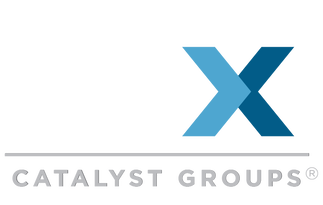Significant SBA Loan Updates for Business Buyers & Sellers
As seen in Cascade Business News - 11/01/2023
With its legislative roots going back to the Great Depression and WWII, the US Small Business Administration was formed in 1953 and signed into law by President Eisenhower. The agency was formed to “aid, counsel, assist and protect, insofar as is possible, the interests of small business concerns.”
Although the SBA performs a number of functions in support of small businesses, arguably the most directly beneficial for small business buyers, sellers and operators is the SBA Loan Program, which was launched in 1954. The SBA provides loan guarantees that reduce risk for commercial lenders by providing loan guarantees for small business buyers (who otherwise would not be sufficiently creditworthy), thus making it possible for entrepreneurs to acquire and fund business-related real estate, equipment, and business purchases. The two key SBA loans are 504 loans and 7(a) loans
As seen in Cascade Business News - 11/01/2023
With its legislative roots going back to the Great Depression and WWII, the US Small Business Administration was formed in 1953 and signed into law by President Eisenhower. The agency was formed to “aid, counsel, assist and protect, insofar as is possible, the interests of small business concerns.”
Although the SBA performs a number of functions in support of small businesses, arguably the most directly beneficial for small business buyers, sellers and operators is the SBA Loan Program, which was launched in 1954. The SBA provides loan guarantees that reduce risk for commercial lenders by providing loan guarantees for small business buyers (who otherwise would not be sufficiently creditworthy), thus making it possible for entrepreneurs to acquire and fund business-related real estate, equipment, and business purchases. The two key SBA loans are 504 loans and 7(a) loans
504 loans provide long term fixed rate financing for major fixed asset purchases by existing businesses that promote business growth and job creation.
The 7(a) Loan Program is the SBA’s primary business loan program for providing financial assistance to small business. 7(a) loans can be used for a number of purposes, but for those of us involved in business acquisition and sale transactions, the 7(a) Loan Program is a powerful tool to fund business acquisitions. The maximum 7(a) loan amount is $5,000,000, which, given a strong business and a strong buyer can fund transactions encompassing some or all of the valuation of most small businesses.
For business buyers, the 7(a) program offers several benefits. First, for many buyers, it makes borrowing for a business acquisition possible. Second, the down payment requirements (while dependent on each situation) are modest. Third, the loans are fully amortized over a ten-year term, which makes a material difference in monthly and annual business cash flow. Finally, the interest rates are a negotiated premium over Prime Rate – typically less than 3 points above Prime, dependent on the business and buyer qualifications.
The 7(a) Loan Program is the SBA’s primary business loan program for providing financial assistance to small business. 7(a) loans can be used for a number of purposes, but for those of us involved in business acquisition and sale transactions, the 7(a) Loan Program is a powerful tool to fund business acquisitions. The maximum 7(a) loan amount is $5,000,000, which, given a strong business and a strong buyer can fund transactions encompassing some or all of the valuation of most small businesses.
For business buyers, the 7(a) program offers several benefits. First, for many buyers, it makes borrowing for a business acquisition possible. Second, the down payment requirements (while dependent on each situation) are modest. Third, the loans are fully amortized over a ten-year term, which makes a material difference in monthly and annual business cash flow. Finally, the interest rates are a negotiated premium over Prime Rate – typically less than 3 points above Prime, dependent on the business and buyer qualifications.
|
The variable rate is a two-edged sword. When interest rates are low, as they were until the last couple years, the relatively low monthly loan payments eased cash flow.
In addition, since the amount by which business cash flow exceeds debt service drives lender consideration of loan size, low interest rates support higher business valuations. |
The variable rate is a two-edged sword. When interest rates are low, as they were until the last couple years, the relatively low monthly loan payments eased cash flow. |
Because SBA loan interest rates are variable, the recent increase in interest rates has increased loan payments on existing SBA loans substantially. For example, the loan payment on a $2mm 10-year loan at 5% is $21,213 per month. That same loan at a newly revised rate of 10% requires a monthly payment of $26,430, about $5,000 per month more than the business was previously paying. This should be a wakeup call to business operators. Variable interest rates do vary. They don’t always stay low. The good news, of course is that rates could go down to previous low levels again. Don’t bet on it.
Of further consideration for business buyers and sellers is that a deal that could have been done at $2mm a few years ago at 5% loan interest rates, will only be financeable today at a value that’s likely hundreds of thousands of dollars less, when financed at a 10% rate. This is a simplified comment, as each deal, bank, buyer and subject business is different. The big picture point is, when interest rates rise, lenders finance smaller valuations due to increased loan payment amounts. This has significant ramifications for business purchase and sale transactions.
For buyers, it means a larger down payment, subordinated debt or small equity investor infusions may be required.
For sellers, this could mean a price reduction, a requirement to provide seller financing, or an acceptance of a reduced potential buyer pool and a longer sales process.
A qualified mergers and acquisitions professional can guide buyers and sellers through the complexities of the transactional structure options in this new lending landscape.
Now, for some good news. The SBA issued a new Standard Operating Procedures summary in August that could prove helpful to buyers and sellers in this tougher economic environment. Here are some highlights.
Of further consideration for business buyers and sellers is that a deal that could have been done at $2mm a few years ago at 5% loan interest rates, will only be financeable today at a value that’s likely hundreds of thousands of dollars less, when financed at a 10% rate. This is a simplified comment, as each deal, bank, buyer and subject business is different. The big picture point is, when interest rates rise, lenders finance smaller valuations due to increased loan payment amounts. This has significant ramifications for business purchase and sale transactions.
For buyers, it means a larger down payment, subordinated debt or small equity investor infusions may be required.
For sellers, this could mean a price reduction, a requirement to provide seller financing, or an acceptance of a reduced potential buyer pool and a longer sales process.
A qualified mergers and acquisitions professional can guide buyers and sellers through the complexities of the transactional structure options in this new lending landscape.
Now, for some good news. The SBA issued a new Standard Operating Procedures summary in August that could prove helpful to buyers and sellers in this tougher economic environment. Here are some highlights.
- For a complete change in ownership, SBA requires a minimum of a 10% equity injection, typically coming from the buyer. The new SOP provides a couple pathways for seller financing to help offset buyer cash infusion requirements. This is not only important for buyers, it also opens a broader universe of buyers to business sellers.
- An equity injection is not required for loans made for an ESOP to acquire 51% or more interest in a small business. ESOP loans can now be processed through the streamlined Preferred Lender Program, at the lender level, rather than having to grind their way through the centralized Federal SBA approval process.
- The SBA now permits loan proceeds to fund a partial ownership change – either through a stock sale or redemption. Previously, the SBA 7(a) program was used to fund outright purchases. Although there are, of course, complexities, this may open a pathway to sale of a business to a key employee or family member funded with a low-down payment SBA loan. This could be a breakthrough opportunity for some closely held businesses where the owner is phasing into retirement.
- Historically, an applicant for a business loan had to show that the funds they were looking to borrow were not available from the borrower’s personal resources. SBA lenders no longer need to consider the personal resources and liquidity of borrowers when they apply for SBA loans. This may be especially beneficial for affluent buyers looking to conserve cash and “keep their powder dry.”
|
In summary, we have a classic bad news-good news situation. The economic environment for business buyers and sellers is tougher than it was a couple years ago. However, the new SBA rules may open fresh paths for achieving transactional success.
|
In summary, we have a classic bad news-good news situation. The economic environment for business buyers and sellers is tougher than it was a couple years ago. However, the new SBA rules may open fresh paths for achieving transactional success. |
To navigate the financing of a business purchase and sale effectively and to successfully complete transactions prudently and sustainably requires skilled professional advice. A seasoned mergers and acquisitions advisor, an excellent transactional attorney, a capable CPA and selection of the right lender (not all SBA lenders are the same) can make the difference between celebration and consolation…or desolation.
Michael Sipe is a local mergers and acquisitions advisor and business coach. CrossPointeCapital.com and 10xGroups.com
Michael Sipe is a local mergers and acquisitions advisor and business coach. CrossPointeCapital.com and 10xGroups.com


